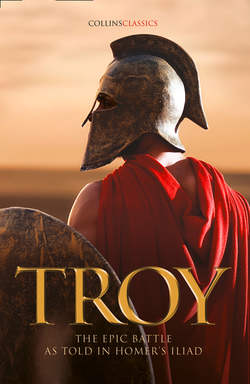Читать книгу Troy: The epic battle as told in Homer’s Iliad - Гомер - Страница 6
ОглавлениеLife & Times
Homer and his Works
Homer, to whom The Iliad and The Odyssey are attributed, is thought to have been writing at around 800–900 BC, and the poems are thought to mark the beginnings of Western literature, almost 3,000 years ago. Many believe that they were not written by one person and that several were responsible for composing the poems. Both works are essentially very lengthy poems or, more accurately, lyrics or rhapsodies as they would originally have been performed in song in Ancient Greece.
Homer lived on the Aegean coast of what is now Turkey, but was then a part of the Greek Empire. The Ancient Greek cosmology was filled with mythological stories that were taught to children by way of explaining the world around them. All manner of gods and monsters were central to the stories and the Greek islands and mountains served as realms in which different scenarios were played out. Intertwined with the mythology were legendary tales of significant historical characters, loosely based on truth. This all added up to a complex and vast folklore. It was this folklore that Homer, either in the individual or collective sense, drew from in his epic poems, which include the The Iliad, effectively the prequel to The Odyssey. These two works form the foundation for subsequent Greek culture – society would use them as points of reference and guidance, in the same way that many have used the testaments of the Bible to instruct their way of life. So it was that Homer’s poems became manuals for appeasing the gods and living peaceful and fruitful lives in Ancient Greece.
As for Homer himself, it is a matter of considerable contention between Classical scholars as to whether he ever existed and when. There is very scant evidence available, so it seems likely that he may be a mythical figure, an old father time, grandfather to the nation. As a result any literary works of significance were attributed to him, simply because it was impossible to know who the real author or authors were. As there was a great oral tradition of story telling in Ancient Greece, it is more likely that the epic poems were developed and refined over generations by many orators. Perhaps a politician realized their worth as pedagogic texts and ordered scholars to document them for that very purpose. Or perhaps a master orator, or rhapsode, had them documented, so that his apprentices could travel to different regions of the Greek empire and recite the exact same texts.
The Iliad
The central focus of The Iliad is on the Greek Warrior Achilles and the anger he feels at the Trojans and those individuals who have wronged him. A combination of fact, myth and legend, the poem tells of the Trojan War, set within the walled city of Troy and surrounding area. Homer celebrates war in his depiction of characters, suggesting that their competence or bravery on the field is what deems them as worthy or respectable. The realities of war are apparent in his gruesome descriptions and he seems to support the notion that glory on the battlefield is preferable to family life and love.
The Odyssey
The central character in The Odyssey is the eponymous Odysseus. The story is epic in its scope and describes the many heroic deeds and adventures of Odysseus as he attempts to find his way home after the Trojan War. One of the major themes of the work is the play-off between the human qualities known by the Ancient Greeks as me-tis and hubris. In simple terms me-tis is best described as intelligence and common sense or cunning and guile. Hubris, on the other hand, is excessive pride and self-confidence. In essence they are opposed traits – the perfect individual needs to have a measured balance of both in order to avoid failure in whatever life throws at them. The original meaning for the term nemesis was the punishment meted out to those who displayed excessive defiance of the gods, which could result from an imbalance of these qualities.
The poem is also fundamentally about the human sense of belonging and homecoming, a theme ubiquitously familiar to all people and one that echoes throughout the poem as Odysseus finds himself in a huge variety of different situations in his quest to return home to his wife and son.
